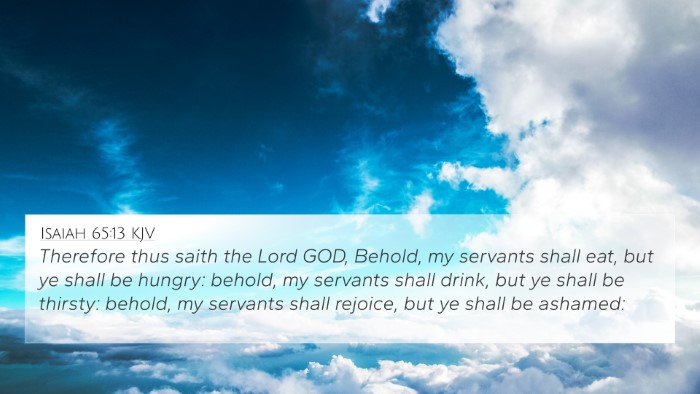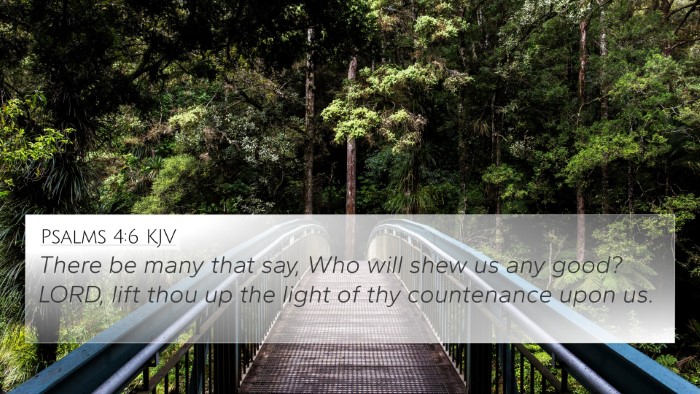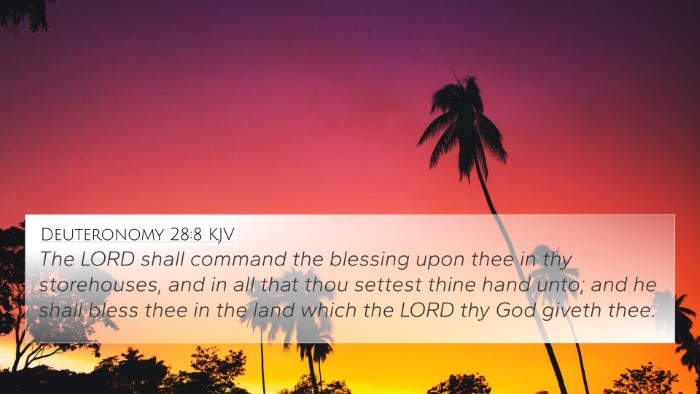Meaning and Interpretation of Ecclesiastes 5:20
Ecclesiastes 5:20: "For he will not much remember the days of his life; because God answereth him in the joy of his heart."
Summary of Insights
This verse provides a profound understanding of the relationship between the joy bestowed by God and the fleeting nature of human existence. Commentators emphasize that a person blessed with joy will find little concern about the trials of life, which are often overshadowed by a deeper, more sustaining joy from God.
Matthew Henry's Commentary
Matthew Henry reflects on the idea that the joy offered by God allows individuals to overlook their troubles and focus on the good. He notes that when one experiences true contentment, the worries of life become trivial. The choice to embrace joy, as a gift from God, is what makes each day worthwhile.
Albert Barnes' Commentary
Albert Barnes adds that the verse suggests a divine perspective, where God provides joy that transcends human understanding. This joy acts as a buffer against life's difficulties, allowing individuals not to dwell excessively on their sorrows. Barnes elaborates on how God's responses are life-transforming, leading to a heart full of joy irrespective of circumstances.
Adam Clarke's Commentary
Adam Clarke interprets this passage to indicate that an individual who receives divine joy may not recall their life's hardships. Clarke emphasizes the nature of joy as a gift from God, which is capable of overshadowing life's inconvenience and troubles. He further highlights how such joy contributes to a sense of peace and contentment.
Bible Cross References
- Philippians 4:4: "Rejoice in the Lord always; again I will say, rejoice!"
- Psalms 16:11: "You make known to me the path of life; in your presence there is fullness of joy; at your right hand are pleasures forevermore."
- Psalms 30:5: "For his anger is but for a moment, and his favor is for a lifetime. Weeping may tarry for the night, but joy comes with the morning."
- Romans 14:17: "For the kingdom of God is not a matter of eating and drinking but of righteousness and peace and joy in the Holy Spirit."
- John 16:24: "Until now you have asked nothing in my name. Ask, and you will receive, that your joy may be full."
- Nehemiah 8:10: "And do not be grieved, for the joy of the Lord is your strength."
- Isaiah 61:3: "To grant to those who mourn in Zion—to give them a beautiful headdress instead of ashes, the oil of gladness instead of mourning, the garment of praise instead of a faint spirit."
Thematic Connections
This verse connects with several overarching themes in Scripture, including:
- The Gift of Joy: Recurring throughout the Bible is the emphasis on joy as a divine gift. This theme connects to many verses, such as Psalms 126:5-6 which speaks to the joy of reaping after sowing tears.
- Divine Response: God's answering prayers with joy can be found in 1 John 5:14-15, which discusses confidence in approaching God.
- The Transitory Nature of Life: The fleeting nature of human life is noted in James 4:14, reminding believers of their brief earthly existence.
- Faith Over Worry: The exhortation against anxiety is evident in Matthew 6:25, driving home the idea of focusing on spiritual joy instead of worldly concerns.
Comparative Bible Verse Analysis
In analyzing similar verses, several key themes emerge:
- Bible verses that remind believers of the impermanence of life's troubles often link back to the theme found in Ecclesiastes 5:20.
- Scriptural cross-referencing shows that joy is not contingent on circumstances but rather on a relationship with God, as articulated in Habakkuk 3:17-18, which expresses joy despite adversity.
- The connection between joy and a life of faith is supported throughout Paul's letters, where his epistles repeatedly call believers to rejoice amidst trials.
Conclusion
In conclusion, Ecclesiastes 5:20 is a poignant reminder of the transformative power of divine joy over life's temporal challenges. It encourages believers to seek a deeper relationship with God, which fosters an enduring sense of happiness, regardless of circumstances.
Further Reflection
Believers are encouraged to creatively explore cross-referencing biblical texts to deepen their understanding. By examining how verses relate and support one another, one can discover a richer, more profound interpretation of God's word. Utilizing tools for Bible cross-referencing can enhance this study, revealing connections that not only enlighten but also strengthen one's faith.











